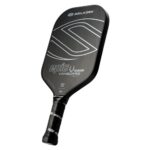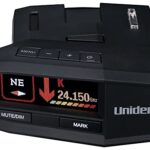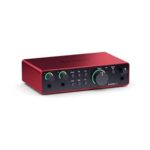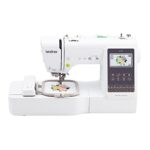Disclaimer: We may earn affiliate commission from qualifying purchases at no extra cost to you.
No, you should not plug a refrigerator into an extension cord. Refrigerators are large appliances that draw more current than the circuit can handle and this could cause serious damage to both the appliance and the extension cord itself. It is also possible for an overloaded extension cord to overheat and melt or even catch fire which could result in property damage or injury.
For safety reasons, always plug a refrigerator directly into a wall outlet that has been properly grounded according to local building codes.
- Step 1: Start by purchasing an extension cord that is rated for the current draw of your refrigerator
- Make sure to read the label on the back of the appliance to determine its current draw in amps, and then buy a cord with a rating equal or higher than this number
- Step 2: Carefully plug one end of the extension cord into an accessible wall outlet or power strip
- Do not use any outlets that are controlled by a switch as these can cause problems for refrigerators when turned off unexpectedly
- Step 3: Attach the other end of the cable to your fridge’s plug-in port located at either rear side near bottom corner (depending on model)
- If you have difficulty accessing this port, consult your manual first before attempting anything else
- Once connected securely, turn on power at source location if necessary and verify that it is receiving power properly before continuing further steps

Credit: refrigeratorplanet.com
What Gauge Extension Cord Do I Need for a Refrigerator?
A refrigerator typically requires a 12-gauge extension cord for safe operation. To ensure proper power delivery, the following should be taken into consideration when selecting an extension cord:
• The length of the cord;
• The wattage rating of the appliance;
• Whether the appliance is single or three-phase;
• Voltage rating of both the appliance and extension cord.
Can You Plug a Refrigerator into a Power Strip?
Yes, you can plug a refrigerator into a power strip. However, there are certain safety measures to consider when doing so:
-Make sure the power strip is suitable for heavy appliances such as fridges.
-Ensure that the wattage rating of your fridge does not exceed the capacity of the power strip.
-Avoid using extension cords with a refrigerator; always use an outlet directly connected to your home’s circuit breaker box.
Is It Safe to Run Appliances on an Extension Cord?
It is generally not safe to run appliances on an extension cord due to potential fire hazards. Extension cords are typically designed for light-duty use and are not intended to be used with more powerful devices, such as refrigerators or air conditioners. Here are some safety tips:
• Always ensure that the electrical rating of your extension cord matches the power requirements of the appliance.
• Never daisy chain multiple extension cords together in order to reach a longer distance or increase power capabilities.
• Avoid using frayed or damaged cords; inspect them regularly for any signs of wear and tear.
• Ensure your extensions cords have ground fault circuit interrupters (GFCIs) installed if they will be used near water sources, including sinks and bathtubs.
Why Do Some Appliances Say Not to Use an Extension Cord?
There are several safety risks associated with using an extension cord for certain appliances. Extension cords can be overloaded if too many devices are plugged in, leading to overheating and potential fire hazards. Additionally, the wires inside of an extension cord can be of a lower gauge than those found in standard outlets, meaning they cannot handle as much current and could potentially cause shorts or arcs when used with high-powered appliances.
Lastly, the insulation on some extension cords may not meet certain safety standards required by larger appliances like refrigerators and air conditioners.
• Overloading potential
• Lower gauge wiring
What extension cord to use for large refrigerator in garage
What is the Best Extension Cord for a Refrigerator
The best extension cord for a refrigerator is one that has 10-gauge, three-wire cords with a Ground Fault Circuit Interrupter (GFCI). This type of cord will provide the most safety and power needed to safely run your refrigerator. Make sure to measure the length you need so you don’t have too much or too little slack.
Be sure to check all labels on the product before purchasing!
Conclusion
In conclusion, it is not safe to plug a refrigerator into an extension cord. Refrigerators require more power than a typical extension cord can provide and the risk of fire or electrical overload is too great. If you need additional outlets for your refrigerator, consider having an electrician install dedicated receptacles for it in your home.

Meet Jeremy E. Hendley, a seasoned product review expert whose passion for technology, innovation, and consumer empowerment has propelled him to the forefront of the industry. With a keen eye for detail and an insatiable curiosity about the latest gadgets and innovations, Jeremy has become a trusted voice in the realm of product reviews.







